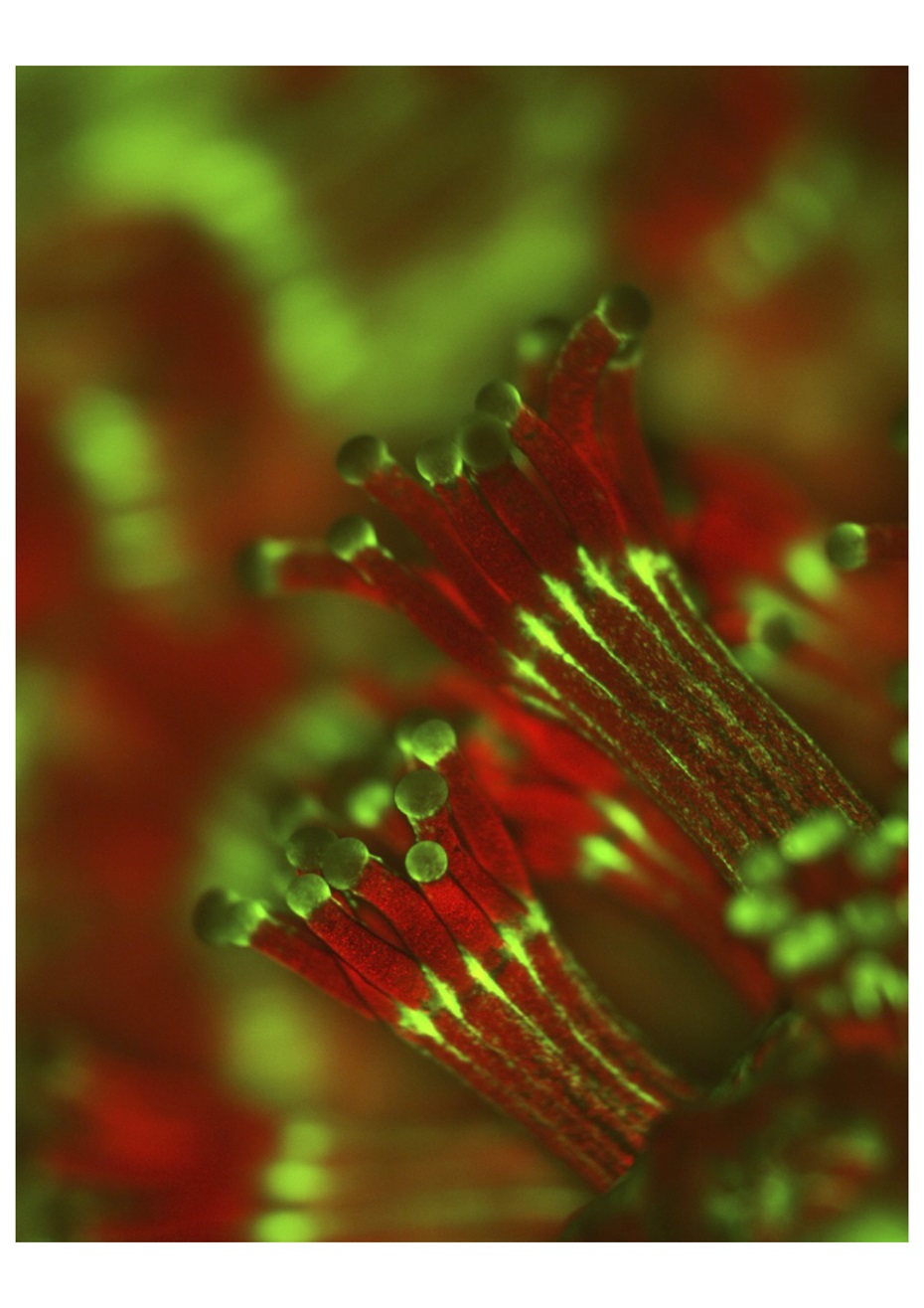Unraveling the molecular basis of coral symbiosis and bleaching

Project Details
Program
BioScience
Field of Study
Ecological Genomics
Division
Biomedical Sciences
Faculty Lab Link
Center Affiliation
Red Sea Research Platform
Project Description
Coral-algae symbiosis is essential for the survival and growth of corals and for the functioning of coral reef ecosystems. However, this symbiosis can be disrupted by various environmental stressors, such as high temperature, pollution, or disease. When this happens, the corals lose their algae and turn white, a phenomenon known as coral bleaching. Bleached corals are more vulnerable to mortality and may not recover their symbionts if the stress persists. Understanding the interactions between coral hosts and their algal symbionts under different environmental conditions is crucial for developing conservation strategies. At KAUST, we study these interactions at different levels, from the molecular underpinnings to the ecological contexts. We seek motivated students who want to learn more about this symbiotic relationship. The students will be able to learn various techniques and skills related to coral biology, molecular biology, and bioinformatics.
About the Researcher
Manuel Aranda Lastra
Professor of Marine Science
Affiliations
Education Profile
- Postdoctoral Fellow, King Abdullah University of Science & Technology, 2009
- Postdoctoral Fellow, Institute for Genetics, University of Cologne, 2007
- Ph.D., Institute for Genetics, University of Cologne, 2006
- Diploma, Institute for Genetics, University of Cologne, 2001
Research Interests
Prof. Aranda is an evolutionary biologist with a strong background in functional genetics and coral reef genomics. His group studies the molecular underpinnings of the cnidarian-algal symbiosis and its environmental stress-related breakdown using functional genomics and genetics approaches. Furthermore, they are interested in how corals use the ability to modify their genomes through epigenetic mechanisms in order to adapt to changing environmental conditions.Selected Publications
- E. Howells, D. Abrego, Y. J. Liew, J.A. Burt, E. Meyer, M. Aranda (2021). ""Enhancing the heat tolerance of reef-building corals to future warming"". Science Advances, 2021 Aug 20;7(34):eabg6070. doi: 10.1126/sciadv.abg6070
- A. Nand, Y. Zhan, O.R. Salazar, M. Aranda, C.R. Voolstra, J. Dekker (2021). ""Chromosome-scale assembly of the coral endosymbiont Symbiodinium microadriaticum genome provides insight into the unique biology of dinoflagellate chromosomes"". Nature Genetics 53, 618a-629 (2021). doi.org/10.1038/s41588-021-00841-y(Cover Story!)
- Y.J. Liew, E. Howells, X. Wang, C.T. Michell, J. Burt, Y. Idaghdour, M. Aranda (2020). ""Intergenerational epigenetic inheritance in reef-building corals"". Nature Climate Change (2020). https://doi.org/10.1038/s41558-019-0687-2
- Y. Li, Y.J. Liew, G. Cui, M.J. Cziesielski, N. Zahran, C.T. Michell, C.R. Voolstra, M. Aranda (2018). ""DNA methylation regulates transcriptional homeostasis of algal endosymbiosis in the coral model Aiptasia"". Science Advances Vol. 4, no. 8, eaat2142 DOI: 10.1126/sciadv.aat2142
- Y. J. Liew, D. Zoccola, Y. Li, E. TambutteI, A.A. Venn, C. T. Michell, G. Cui, E.S. Deutekom, J.A. Kaandorp, C.R. Voolstra, S. FA´ret, D. Allemand, S. TambutteI, M. Aranda (2018). ""Epigenome-associated phenotypic acclimatization to ocean acidification in a reef-building coral"". Science Advances Vol. 4, no. 6, eaar8028, DOI: 10.1126/sciadv.aar8028
Desired Project Deliverables
This interdisciplinary project comprises wet-lab work (80%) and soft skills (20%). Soft skills are not mandatory but can be acquired during the project through the intern's initiative.
The project deliverables include:
1) Regular plan for growth and proliferation of sea anemones
2) Setting up experiments
3) Optimize existing protocols (nucleic acid extraction, HCR, FISH, etc.)
4) Basic data analysis (RNASeq, DNAseq,)
5) Consolidated report at the end of the internship
The intern is expected to have experience in the following areas:
1) Basic wet laboratory skills
2) Animal care procedures
3) Molecular biology techniques such as RNA isolation and DNA isolation
4) Basic knowledge of UNIX and soft skills (considered advantageous)
Overall, the intern should be proactive, eager to broaden their interests and meet with the principal investigator every two weeks to discuss research progress.
Recommended Student Background
Molecular Biology
Ecological Genomics
Genomics
Bioinformatics
We are shaping the
World of Research
Be part of the journey with VSRP
3-6 months
Internship period
100+
Research Projects
3.5/4
Cumulative GPA
310
Interns a Year